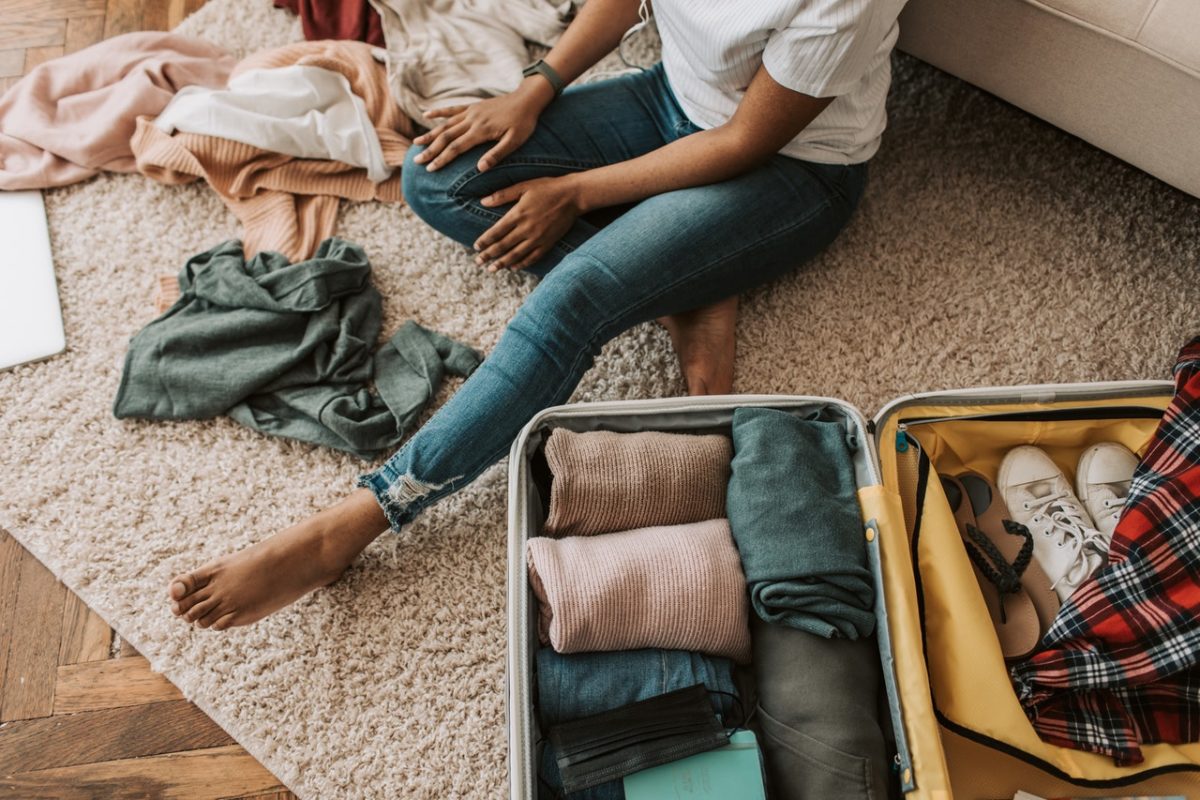How to prepare to leave a relationship of domestic violence
If you wish to leave an unsafe, abusive relationship, it’s crucial that you seek support and plan ahead to minimise the risk of harm to yourself and your children.
By Jessica Koot, Lawyer at Australian Family Lawyers in Wollongong
What is domestic violence?
Family and domestic violence refers to acts of violence or other abuse that occurs in a domestic setting. Family and domestic violence may be perpetrated by a current or former intimate partner but can also be perpetrated by and upon other family members including children, parents, and the elderly.
Family and domestic violence is not limited to physical abuse, it can include:
- Sexual abuse;
- Reproductive abuse;
- Emotional abuse;
- Psychological abuse;
- Verbal abuse;
- Social abuse;
- Economic or Financial abuse;
- Spiritual abuse;
- Coercive and controlling behaviours;
- Stalking; and
- Use of technology to control or monitor.
In Australia, 1 in 4 women experience violence and abuse from a current or former partner, and women are almost three times more likely to experience domestic violence in comparison to men. Family and domestic violence can have long term physical and emotional impacts on victims, including children.
How to leave a domestic violence relationship or situation

If you are a victim survivor of family and domestic violence, the following may provide some assistance when fleeing the abusive relationship. We understand that everyone’s circumstances are different and this is by no means an exhaustive list but rather a guide.
1. Seek support
The breakdown of a marriage or relationship is likely to be one of the most challenging processes that you will experience. Seeking support is essential to ensure that you and your children are safe both physically and emotionally.
You should ensure that you are well supported through:
- Personal supports such as family, friends, and/or work colleagues;
- Professional services including your GP, counsellor, psychiatrist and/or psychologist;
- Community services such as your local Women’s Health Centre; and
- Seek the advice of a Family Law solicitor about any potential ramifications in relation to care of your children and any potential Family Law property settlement.
The following national support services can be contacted for more information about your options and next steps:
- 1800RESPECTis a national sexual assault, domestic family violence counselling service that provides information on a range of issues including safe accommodation and housing, the Police, law and financial issues. 1800RESPECT is free, confidential and can connect you with additional support services in your state or territory. Contact 1800RESPECT on 1800 737 732.
- Relationships Australia provides counselling, Family Dispute Resolution (mediation), support and education programs. Contact Relationships Australia on 1300 364 277.
- Men’s Referral Serviceis a free, confidential telephone helpline that provides people impacted by domestic violence with general support, support services and information concerning male family violence. Contact the Men’s Referral Service on 1300 766 491.
- Family Relationship Advice Line is a national telephone service that provides information, support and services concerning family relationships, family separation issues, the family law system, parenting arrangements, telephone-based Family Dispute Resolution and referrals to Family Relationship Centres. Contact the Family Relationship Advice Line on 1800 050 321.
- Women’s Health Centre’s across Australia provide support to women who have experienced family and domestic violence such as the Illawarra Women’s Health Centre of which the writer is Vice Chair on the board.
If you feel unsafe or if you and/or your children are in immediate danger, you should contact the Police on Triple Zero (000) for assistance.
2. Safety planning

Escaping family and domestic violence can be frightening and it is important to be as prepared as possible to ensure the safest possible escape for you and your children.
Consider contacting a support service, such as your GP, treating mental health practitioner, local Women’s Health Centre, or 1800RESPECT, to prepare a detailed Safety Plan which you can implement to best ensure both you and your children are safe when at home, escaping the home and after leaving. Support services can provide practical ideas and suggestions to suit your individual circumstances and needs.
As an example, 1800RESPECT suggests packing an escape bag with essential items, including:
- Money and bank cards.
- Phone and charger.
- Spare keys.
- Medications and prescriptions.
- Personal identification, e.g., Driver’s License, birth certificate and passport.
- Photocopies of important documents, e.g insurance, Child Support, Centrelink, rental agreement; and mortgage documents.
- Medicare card and health records.
- Legal documents.
- Items of sentimental value.
Having a bag packed will ensure that you are as best prepared as possible if you must leave your home quickly
3. Medical and Mental Health
Domestic and family violence can have long term negative impacts upon the physical and mental health of victims including children for the rest of their lives. Yet there remains inadequate funding and support provided by the government in this area particularly for victim survivors of family and domestic violence.
The trauma of domestic and family violence can impact the victim’s physical health including leading to chronic health conditions, pain, and diseases. We remind you to ensure that you are seeking the advice from your GP and medical specialists to ensure that your physical health is as best monitored and looked after as possible.
Mental Health support is also essential. You can seek a referral from your GP to a mental health specialist such as a counsellor, Psychologist or Psychiatrist. Your local Women’s Health Centre may also provide counselling services. There are helplines available including 1800RESPECT, Beyond Blue, and MensLine Australia.
It is important to ensure that your children also have medical and mental health support. The flow on impacts of trauma can be intergenerational. Children who experience and witness family and domestic violence have higher chances of developing health, social and developmental issues throughout their lives.
The Illawarra Women’s Health Centre have recognised the lack of longer-term support for women experiencing trauma from domestic, family, and sexual violence. They are seeking funding and support from the government to establish a Women’s Trauma Recovery Centre as an Australian first community led initiative. With a goal to replicating the design of the centre across Australia. The writer is on the board for the Illawarra Women’s Health Centre and welcomes Nationwide support of the establishment of the Women’s Trauma Recovery Centre.
4. Technology and safety

Perpetrators of family and domestic violence often use technology to monitor, stalk, control and abuse their victims. It is therefore imperative that victims seek support to increase their personal privacy and safety. Changing settings and passwords on devices and accounts may trigger a notification to the perpetrator if they are monitoring those devices and accounts. A Safety Plan around technology is important prior to changes being made.
Contact WESNET or eSafety online for resources, information and advice concerning technology-facilitated abuse, online safety planning, as well as for general safety tips and suggestions. If you are concerned about shared iClouds, you should seek the support of an IT Specialist. There are also organisations that provide services to sweep your home and/or motor vehicles for any recording devices. If any recording devices are found, they should be provided to the Police and a report made in support of an Apprehended Domestic Violence Order being made for your protection and the protection of your children.
Grants can be obtained towards the purchase and installation of security devices including cameras within the perimeters of your home.
5. Housing
In many towns and cities in Australia, we are currently experiencing a housing crisis. The lack availability of social and affordable housing has placed millions of low to middle income Australians into a situation of housing stress.
The housing crisis exacerbates the challenges faced by victim survivors of family and domestic violence. If the Police do not issue an Apprehended Domestic Violence Order excluding the perpetrator from the home, the victim and children may be left in a situation where they need to flee to safety.
Having a plan around where you may go in the immediate short term if you need to leave your home quickly such as with a family member or friend will assist.
Emergency accommodation is available through women’s refuges and shelters, in public housing and in private rentals, such as SAHSSI, The Housing Trust, and the Salvation Army. Contact your local Women’s Health Centre or 1800RESPECT to find crisis or emergency accommodation services in your area that provide safe and secure housing. Referrals can also be provided with respect to transitional housing and housing for longer periods.
Upon seeking legal advice, depending upon the circumstances of your marriage or relationship, your Family Lawyer may be able to file an Application with the Court seeking urgent Orders for sole occupation and exclusive use of the home to the exclusion of the perpetrator.
6. Financial Assistance
It is common for the victim of domestic and family violence to have been under the financial control of the perpetrator. The financial burden of fleeing can also be a contributing factor to victims being stuck in an abusive relationship.
While we appreciate that government agencies can be challenging at times to deal with, you should contact Centrelink for financial advice and information. You may be eligible to receive a Crisis Payment. If there are children of your marriage or relationship, you should also contact the Child Support Agency to check your eligibility to receive Child Support.
Some banks such as the Commonwealth Bank of Australia, Westpac and National Australia Bank have Domestic and Family Violence Emergency Assistance Programs supporting their customers who are victims of financial abuse.
Depending upon the financial circumstances of your marriage or relationship, your Family Law Solicitor may advise you to file an Application with the Federal Circuit and Family Court of Australia seeking urgent Orders for financial support such as spousal maintenance or interim releases of funds.
Victim survivors of domestic violence may also benefit from the support of a financial counsellor for help with budgeting and access to services that provide transport, food and household items. Call Financial Counselling Australia on 1800 007 007 to access free resources and advice in your state.
7. Domestic Violence Protection Orders
If you or your children’s safety is at risk, you should contact the Police. The Police have the power to issue Apprehended Domestic Violence Orders. You may also instruct a solicitor to apply to the Court for a private Apprehended Domestic Violence Order for your protection and the protection of your children.
An Apprehended Domestic Violence Order imposes specific conditions on a person, prohibiting them from engaging in certain behaviours, such as:
- Stalking or coming near you.
- Attending your home.
- Contacting you directly or through other people.
- Damaging your property.
- Consuming alcohol and/or illicit substances within certain periods of coming into contact with you and/or your children.
Breaching an Order is a criminal offence that can result in fines and/or imprisonment. In Australia, Orders to protect against domestic violence are known by different names depending on the state or territory, including:
- Apprehended Domestic Violence Order(New South Wales).
- Intervention Orders (Victoria and South Australia).
- Family Violence Restraining Orders (Western Australia).
- Domestic Violence Order (Queensland, Australian Capital Territory and Northern Territory).
- Family Violence Order (Tasmania).
If you wish to apply for an Order, you can seek assistance from the Police or apply directly to the Court.
8. Domestic violence legal advice
Leaving a violent and abusive partner is challenging for both you and your children. It is essential for your well-being, safety and health that you understand your legal rights and options moving forward. Seek legal advice from an experienced family lawyer at the earliest possible time. Our lawyers can provide advice on all areas of Family Law including Protection Orders, parenting arrangements, Child Support, Divorce and Family Law property settlement matters.
Free and confidential legal advice is also available from national services such as Women’s Legal Service Australia and Legal Aid. For referrals to services in your local area contact 1800RESPECT.
Do you have a question about family law or relationship law?
Call now 03 9088 3184
If you would prefer an Australian Family Lawyers team member to contact you, complete the form below.



